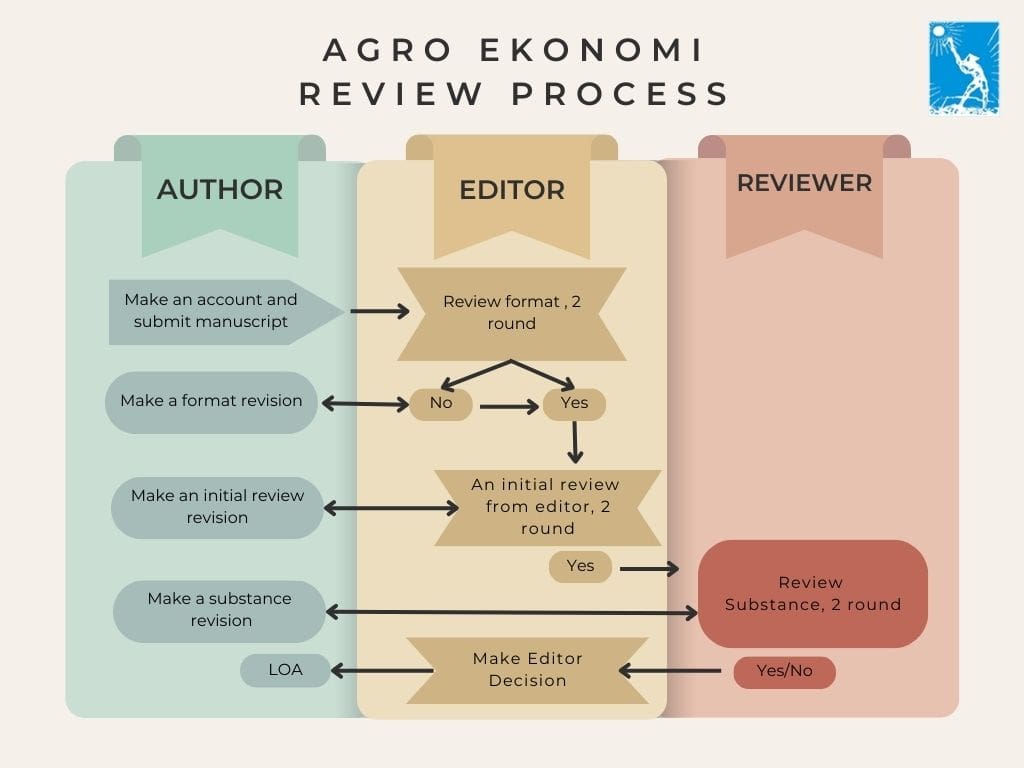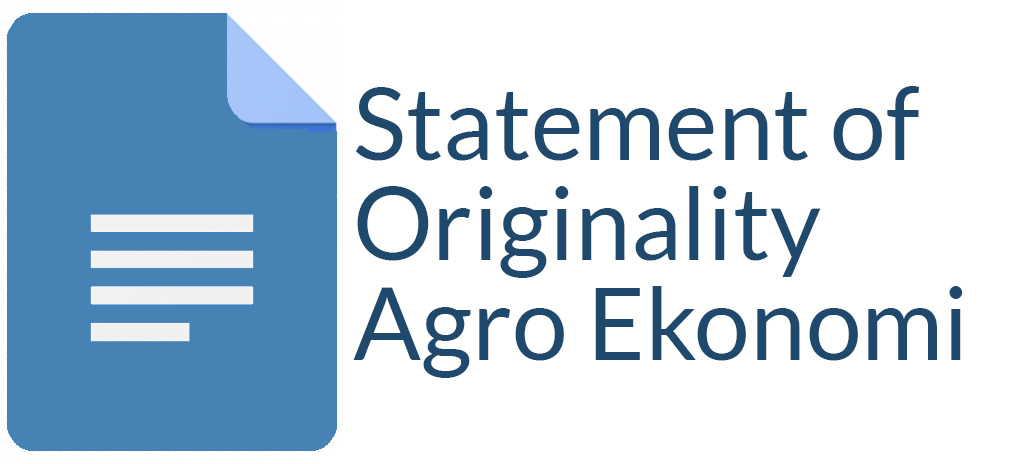DAMP AI( HAMBATAN NON-TARIF TERHADAP PERMINT AAN EKSPOR UDANG INDONESIA KE UNI EROPA
Toni Kuswoyo(1*), Dwidjono Hadi Darwanto(2), Slamet Hartono(3)
(1) Asisten Dosen di Jurusan Perikanan Universitas Gadjah Mada
(2) Fakultas Pertanian Universitas Gadjah Mada
(3) Fakultas Pertanian Universitas Gadjah Mada
(*) Corresponding Author
Abstract
This research used the multiple regression analysis model, with the tolerant time (!gg) I year from tfor several dummy variables. Analysis were conducted at 6 markets: UE as a whole, Dutch, United Kingdom (UK), French, Germany, and Belgia and Luxemburg. Testing of the classical assumptions conducted by the econometric criterions is covering the economic and statistic criterions. The estimation of the regression parameters conducted by the smallest square method (ordinarv least SQuare. OLS) and model repaired as the effect of existence of the first order autocorrelation by a comand "auto". The equation model related to the Coob-Douglas model, was transformed into the natural logarithm model in order to easiZv analyzed in package program of statistics.
Result of the analysis indicated that the commerce regulations applied by the EU, which its vary to each state, entirely has the negative impact to the Indonesian shrimp export to the UE, except D4 for the UK that shown the positive impact. Several regulations known newly indicated the effect which itsformed into Jgg or its impact is newly felt I year after the regulations enter into force. Thefact strengthen the assumption that applying of commerce regulations by the UE can be the disguised restriction to trade, in this case included to the non tarifbarrier. The sixth groups of the regulations
were very related to the food security and traceability aspect, or in its bearing with the WTO agreements were very related to the SPS and TBT aspect. This invention also strengthen the assumption that non-tarif barrier which newly developed by the advanced countries to control the importation from the other countries were deal with the food security and traceability aspect, or the SPS and TBT aspect. The quantitative non- tarif barrier, example import quota or embargo, were rarer in used. Ap-parently, the EU doesn't wishtoooutspokenin theeffort to control its commerce with the other countries.Realizedor not, in thepresentnon-tarif barrier haveimportant
position to determinewhetheror not thefluent of theinternational trade
Keywords
Full Text:
PDFReferences
Muhdi, S., Program Pengembangan Pemasaran Hasi/ Perikanan Indonesia, 2005
Oahuri, R., Membangun Kemba/i Perekonomian Indonesia Melalui Sektor Perikanan dan Kelautan, 2002
Santoso, T. Haryanto, B. Hasyim, A.A. Ojari, S. Mangunsong, dan H.M. Barani., Strategi Penanggulangan Residu Antibiotik Pada Udang Yang Diekspor ke UniEropa., 2004
WPI, Food and Feed Higieny and Control: Peraturan Baru UE., 2006
WPI, Kewajiban Untuk Mencantumkan Traceability Pada kemasan., 2007
WPI, Siapa YangPaling Diuntungkan Dengan Pelabelan YangRind di Eropa?, 2005
WPI,, Pasar Udang Eropa Diramalkan Tidak menentu Selama Semester I 2005., 2005
Article Metrics
Refbacks
- There are currently no refbacks.
Copyright (c) 2016 Agro Ekonomi

This work is licensed under a Creative Commons Attribution-ShareAlike 4.0 International License.
View My Stats











